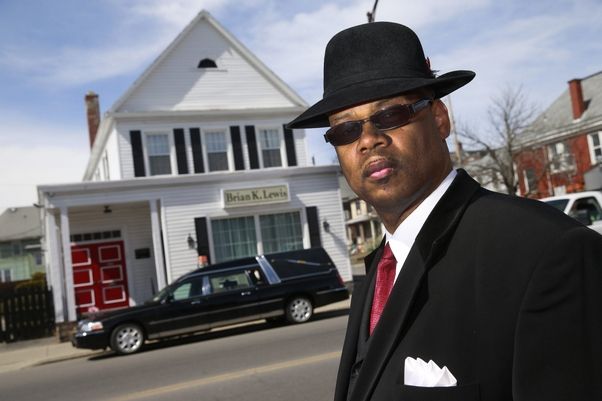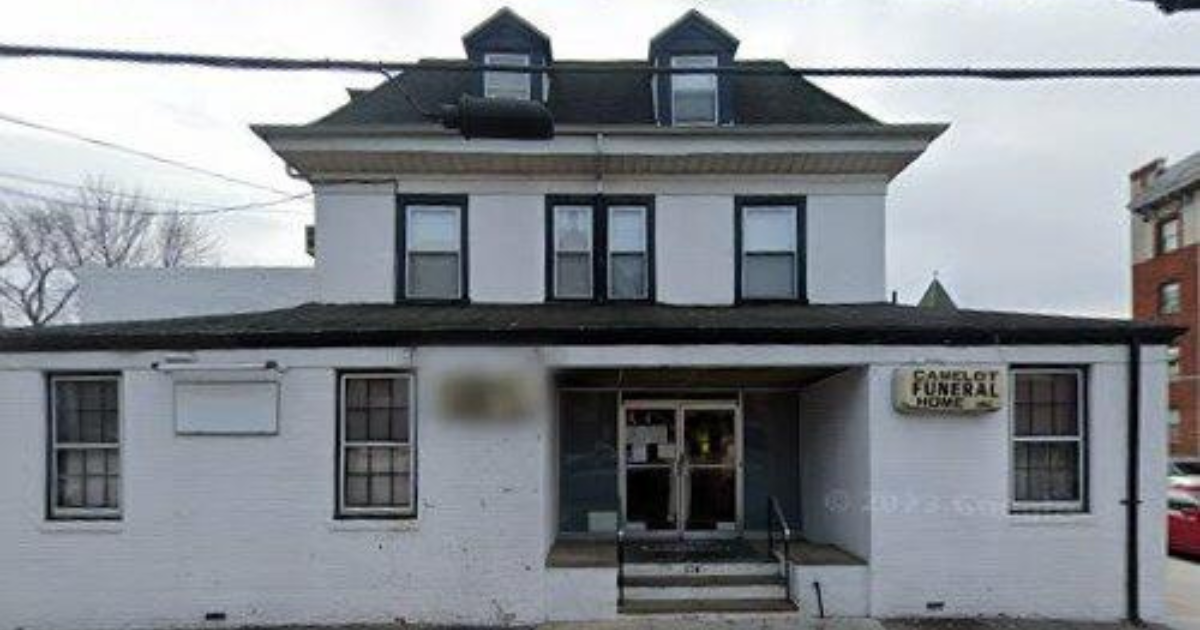Cultural Changes Hitting Area’s Black Funeral Homes
When there was a death in Rhonda Jackson’s family, Thomas T. Edwards Funeral Home would be called.
“They had done the arrangements for my grandfather and my father,” she said.
For another local black family it might have been another black funeral home, like the iconic H. Alfred Lewis Mortuary on Jefferson Avenue or Memorial Chapels of Buffalo on East Utica Street. And in Niagara Falls, the African-American community turned to Williamson Funeral Home on Main Street.
“There was an unwritten agreement between the community and its funeral homes,” said Frank B. Mesiah, president of the Buffalo branch of the NAACP. “When my mother died, we automatically took her to a black funeral home; it never crossed our minds to go anywhere else. That’s what you did; that’s what we’ve always done.”
The long-standing tradition here and around the country created a stable, generational customer base and a thriving industry even in economically distressed inner cities. And it propelled the black funeral director to reverential status. Sherman L. Walker, who opened a parlor on Clinton Street in 1927, is considered Buffalo’s first black millionaire, and also was the area’s first black elected official.
But Jackson broke with that tradition when her nephew was killed in 2009. Her family went to Lombardo Funeral Home – a white firm – for his arrangements.
“It was $2,000 cheaper than the black funeral homes,” she said. “They were upfront about costs and very professional. When I lost my other nephew, I went back to Lombardo.”
In the past decade, African-Americans have increasingly used local white-owned parlors, mainly Lombardo and Amigone Funeral Home. It’s a shift that has hit the black-owned businesses hard and could portend the demise of one of the few viable industries on the East Side.
“It used to be that when I went to a white funeral home, I was going for a white friend, and when I went to black funeral homes, it was for my black friends,” Mesiah said. “But lately, I’ve been going to white funeral homes for my black friends – that’s very new. You would’ve never seen that 10, 15 years ago.”
Taken for granted
Experts say the monopoly that black firms once enjoyed made them complacent.
“Because they could count on, for various reasons, a ready and expanding market of black bodies, they had a business that needed little but their constant availability,” said Karla FC Holloway, a Buffalo native and Duke University professor who wrote “Passed On: African American Mourning Stories: A Memorial.”
Holloway said that their stature in the community “so easily earned and socially necessary, also led to less attention to developing the businesses alongside changing markets and, of course, integration.”
In addition to costs, black funeral homes have been criticized for neglecting their facilities, which are often dated, with few amenities compared to the modern homes of their white counterparts. Some black directors reject that idea. Brian K. Lewis said over the past three years he has spent almost $200,000 updating his facilities on Bailey Avenue, Sycamore Street and Peckham Avenue, which included new furniture, lighting and vehicles.
But today some black funeral homes are reeling, locally and nationally. Some local homes have cut back hours or lowered prices to be more competitive, while others have diversified their customer bases, serving the region’s new immigrants.
“I handled 85 to 90 percent of Muslim services in the area,” said Lewis. “I knew when I opened 17 years ago that I couldn’t count on the community like before. There were signs then that the loyalty wasn’t the same; I couldn’t just be a black funeral home if I wanted to stay in business.”
More competition
For black funeral directors, the change isn’t just a loss of business, it’s a loss of the black funeral tradition, steeped in African burial practices that withstood slavery.
“A black man will go to an Irish-American funeral director to save $80, and his grandfather would have never done that,” said Michael Williamson, owner of Williamson Funeral Home in Niagara Falls. “Our grandparents would have never considered that; there’s a disconnection with our traditional values. It’s generational.”
Meanwhile, local white funeral directors have been projecting growth in the African-American market. A third of Lombardo’s services – 350 to 400 a year – are held for black families, and Amigone serves 300 black families a year, about 15 percent of its business, according to the companies.
“You provide a nice facility, good service and prices, and these things will help the business grow,” said Joseph P. Lombardo, owner of Lombardo, which has three area locations. “Because we take care of families in their time of need, they’re telling other people,” he said.
Anthony P. Amigone Jr., president of the Amigone firm, said quality service helps his business grow. His company has 15 locations and previously operated a location on East Delavan Avenue. He said another East Side parlor is a possibility.
The funeral industry views the African-American community as especially lucrative because of shorter life expectancies, the high mortality rates of young black males due to violence and blacks’ traditional preference for pricier full funeral services.
For years, Lombardo and Amigone have been buying ads in the programs for major events at black churches. Amigone is currently running a TV spot featuring a black woman touting her experience with the funeral home. In recent years, Lombardo’s launched a low-price campaign with ads placed on the side of NFTA buses that black funeral directors said were aimed at East Side residents.
“We put those ads on all buses and those buses went all over the area, not just the East Side,” Lombardo said.
Some black funeral directors believe Lombardo’s lower prices don’t include everything for a basic service, and when they are added, Lombardo’s prices are comparable to theirs.
Click Here To Read Full Article
Image: Brian K. Lewis, who owns three East Side funeral homes, has seen the industry change. Some black families who have patronized black-owned funeral parlors for generations are now opting to use white-owned parlors, putting a big strain on his business.




